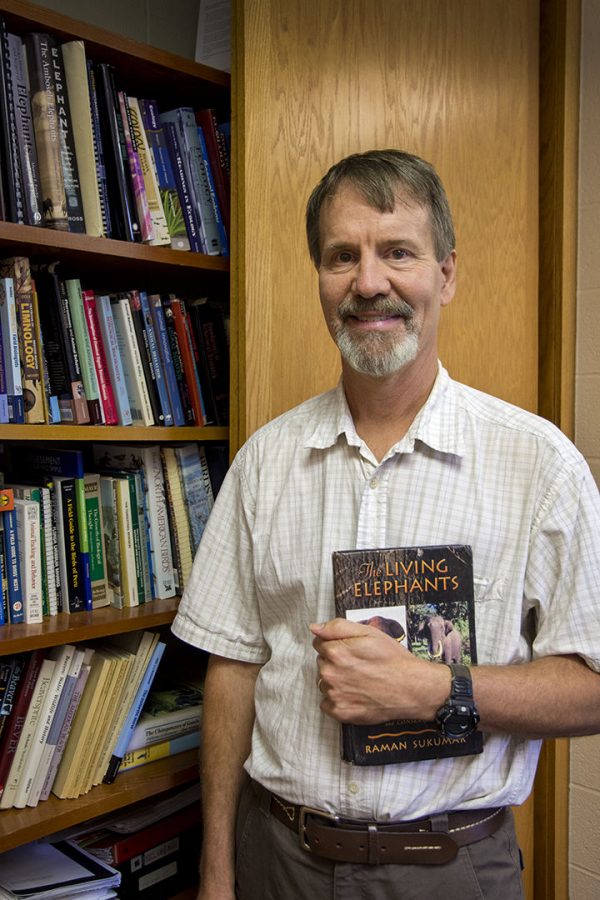Biology professor finds calling in research of wildlife behavior
September 6, 2017
For Bruce Schulte, head of the biology department, studying herbivorous mammalian behavior is a passion that has shaped his career and is central to his research. Schulte is a biology and ecology professor and said he has always been interested in wildlife and biology.
From investigating human-elephant conflict in Kenya to observing tree modification by African elephants in Tanzania, Schulte’s studies have taken him all over the world.
As a doctoral student in New York, he wrote his thesis on beavers’ chemical communication and ecology, then worked as a research scientist in Portland, Oregon for two years, eventually moving to Roger Williams Park Zoo and studying behavioral and ecological characteristics of Castor canadensis, or the North American beaver, while teaching in Providence, Rhode Island, in the mid to late nineties.
“Our world is filled with organisms and processes. For our own survival, it’s important to understand the interconnectedness of life on Earth.” – Head of Biology Department, Bruce Schulte
He then began his teaching career in 1994 as an assistant professor in biology at Providence College, where he remained until 1999 before spending 10 years as an educator and a director in the biology department of Georgia Southern University.
Now Schulte conducts research with graduate students at WKU, concentrating on elephants and their social and reproductive behaviors, as well as chemical mechanisms that affect interactions. He has also expanded more into the study and advancement of conservation in addition to facilitating and improving human-animal interaction and communication.
Schulte has presented his findings at research conferences in places ranging from Bowling Green to Anchorage, Alaska, to Singapore, sharing his research with a local and international audience of students and scientists.
Outside of teaching and research, Schulte enjoys outdoor activity—he listed equestrianism, hiking, biking, skiing, swimming and kayaking as a few of his favorites, as well as reading, playing games and partaking in community theatre. He is currently pursuing a bachelor’s of arts in theatre at WKU, an artistic complement to his years of scientific education and research.
Schulte said he believes educating and researching are intertwined, and he enjoys his job as a professor because it allows him to work with people interested in learning more about the world, which is what he does as a behavioral biologist.
“Our world is filled with organisms and processes,” he said. “For our own survival, it’s important to understand the interconnectedness of life on Earth.”
Reporter Sarah Yaacoub can be reached at 270-745-6255 and [email protected]. Follow her on Twitter at @sarahyaacoub1.



















![Megan Inman of Tennessee cries after embracing Drag performer and transgender advocate Jasmine St. James at the 9th Annual WKU Housing and Residence Life Drag Show at Knicely Conference Center on April 4, 2024. “[The community] was so warm and welcoming when I came out, if it wasn’t for the queens I wouldn’t be here,” Inman said.](https://wkuherald.com/wp-content/uploads/2024/04/smith_von_drag_3-600x419.jpg)





